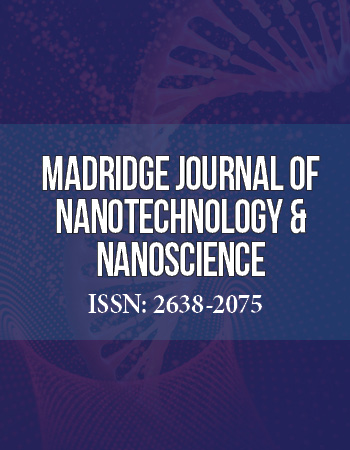2nd International Nanotechnology Conference & Expo
April 3-5, 2017 Dubai, UAE
RESS processing of Naproxen via supercritical technologies
Engineering Division, New York University Abu Dhabi, UAE
Background: It is well known that poor water solubility of pharmaceutical compounds pose significant challenges in drug bio-availability and new drug development. For example, Naproxen, a non-steroidal anti-inflammatory drug (NSAID), is a biopharmaceutical classification system (BCS) class II drug whose bioavailability is rate-limited by its dissolution. Particle size reduction has been used to improve the bioavailability of Naproxen using various micronization techniques.
Results: In the present manuscript, we report a custom designed, constant (P,T) rapid expansion of supercritical solutions (RESS) processing of Naproxen drug, in supercritical CO2. A chamber pressure of 300 bar and 50°C was maintained constant throughout the experiments. RESS chamber was depressurized through a capillary tubing and formulations were collected in a collection vessel cooled at liquid nitrogen temperatures in ‘dry ice’ form. This ‘dry ice’ was gradually dissolved in DI water, which resulted in a clear solution containing dissolved naproxen. These solutions were drop casted on a silicon substrate and ambient dried overnight resulting in stable, viscous films. Generally, Naproxen is a solid powder with melting points of 154°C under ambient conditions. Compositional and structural characterization of the films confirmed their chemical identity as naproxen.
Conclusions: The discovery of liquid-like naproxen films could result in new, oral drug-delivery techniques and would effectively address the poor water solubility problems of the drug. We are applying the sc-CO2 processing strategy for other pharmaceuticals.
Keywords: Poor water solubility, Naproxen, RESS Process andsupercritical technologies,
Biography:
Sudhir Kumar Sharma obtained masters (MSc Physics and MTech Materials) from Department of Physics, Barkatullah University (formerly Bhopal University) Bhopal, India. In 2007, he received his PhD from the Indian Institute of Science Bangalore (IISc. Bangalore), India under the supervision of Prof. S. Mohan. During his PhD, Sharma worked on the development of shape memory micro-actuators for biomedical applications. As post-doctoral fellow, he joined Centre for Nano Science and Engineering (CeNSE), IISc. Bangalore. In Nov. 2013, Dr. Sudhir moved to New York University Abu Dhabi as a research associate. Currently, he is working as a Research Scientist at New York University Abu Dhabi (NYUAD) UAE. His research interest includes implementation of supercritical technologies for nanoparticle synthesis, Smart materials for micro-sensors and actuators, MEMS/NEMS and micro/nano-fabrications, vacuum science, and thin film technology.


